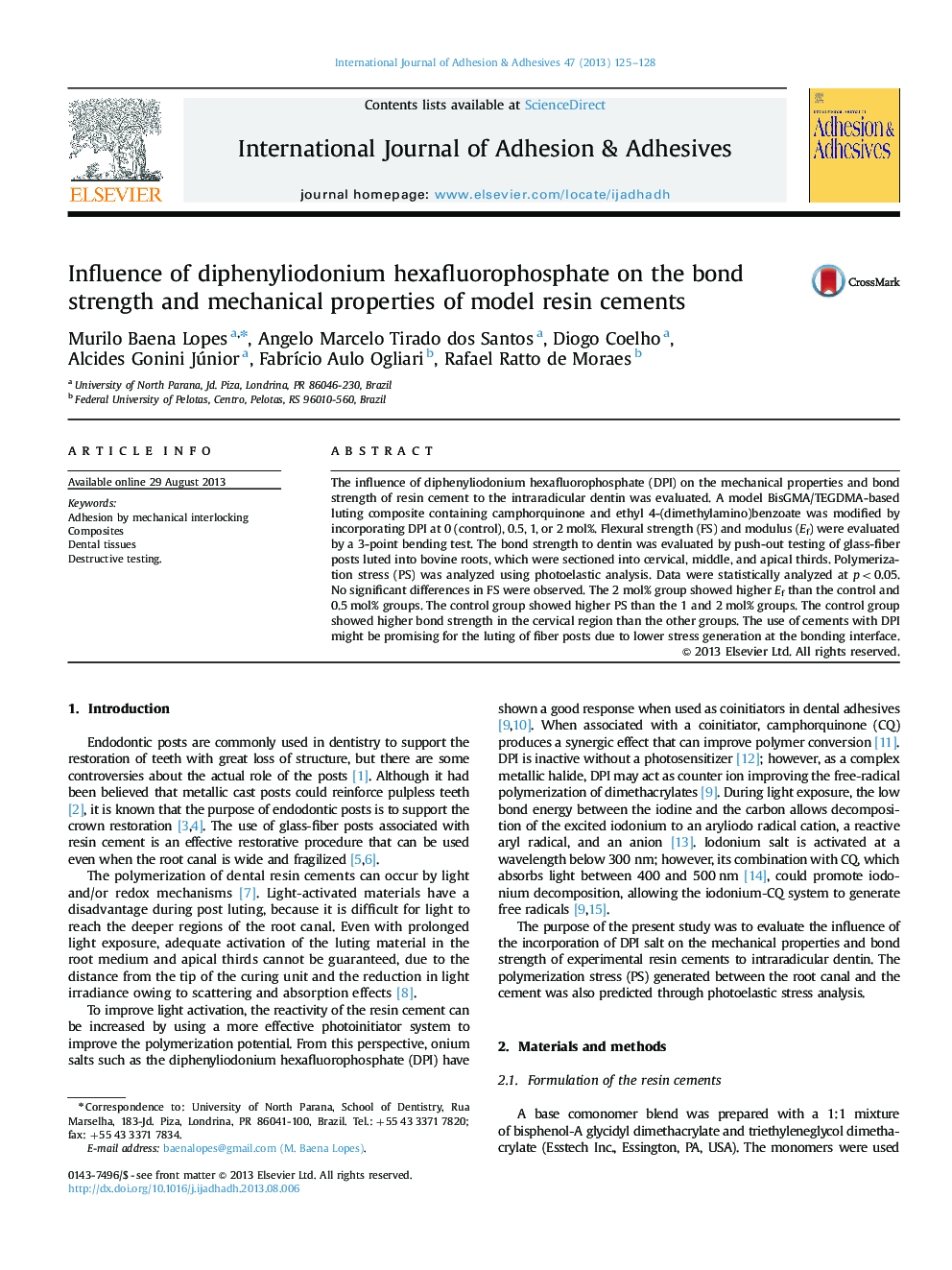| Article ID | Journal | Published Year | Pages | File Type |
|---|---|---|---|---|
| 776813 | International Journal of Adhesion and Adhesives | 2013 | 4 Pages |
The influence of diphenyliodonium hexafluorophosphate (DPI) on the mechanical properties and bond strength of resin cement to the intraradicular dentin was evaluated. A model BisGMA/TEGDMA-based luting composite containing camphorquinone and ethyl 4-(dimethylamino)benzoate was modified by incorporating DPI at 0 (control), 0.5, 1, or 2 mol%. Flexural strength (FS) and modulus (Ef) were evaluated by a 3-point bending test. The bond strength to dentin was evaluated by push-out testing of glass-fiber posts luted into bovine roots, which were sectioned into cervical, middle, and apical thirds. Polymerization stress (PS) was analyzed using photoelastic analysis. Data were statistically analyzed at p<0.05. No significant differences in FS were observed. The 2 mol% group showed higher Ef than the control and 0.5 mol% groups. The control group showed higher PS than the 1 and 2 mol% groups. The control group showed higher bond strength in the cervical region than the other groups. The use of cements with DPI might be promising for the luting of fiber posts due to lower stress generation at the bonding interface.
